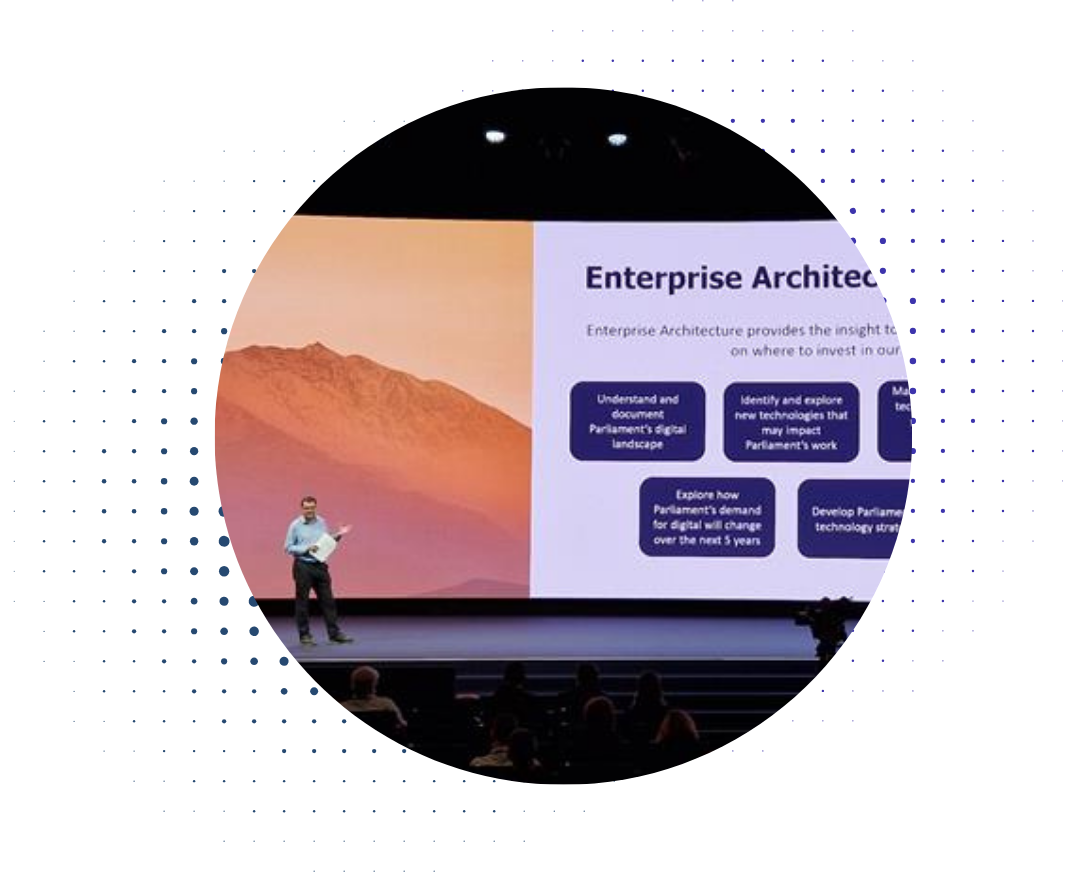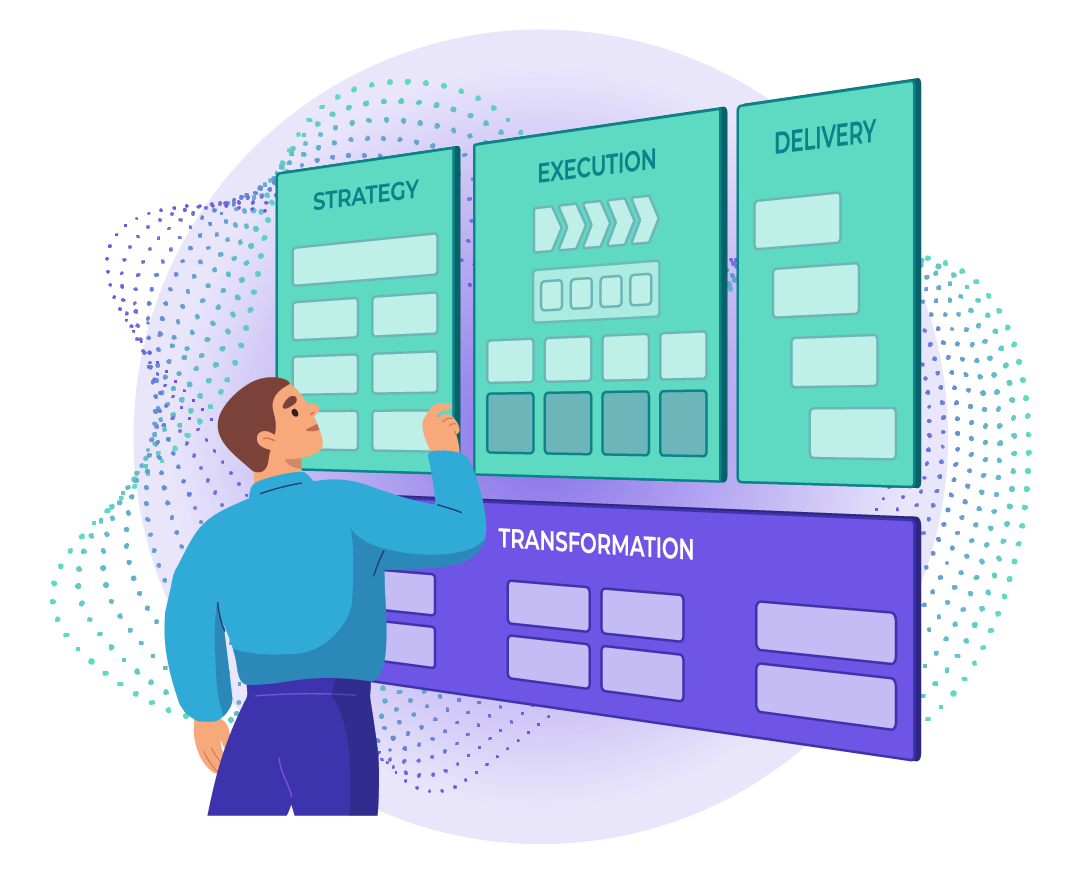In recent years, we've witnessed the expansive growth of artificial intelligence (AI) across various industries. As we've explored in our series, from its historical evolution to the intricacies of natural language processing, AI's capabilities are reshaping the ways businesses operate. But where does it place us in the realm of enterprise transformation and architecture? Let's explore.
AI and enterprise transformation
Enterprise transformation entails a comprehensive shift in how an organization operates, typically driven by changes in market demand, technology, or internal strategy. The primary objective? To evolve and adapt in response to dynamic external pressures.
This is where AI fits in. By embedding AI into the very fabric of business operations and ensuring workforces feel comfortable to use the technology as a supportive tool, enterprises can not only anticipate changes in the market but also adapt to them with unprecedented speed and efficiency. With its ability to analyze vast amounts of data at breakneck speeds, AI empowers organizations to make informed decisions in real-time, ensuring they remain agile in an ever-changing business landscape.
AI's role in enterprise architecture
At its core, enterprise architecture (EA) provides a strategic framework that aligns IT and business strategies. It's all about ensuring that the technology in use supports the overarching business goals. With AI, this alignment becomes even more seamless.
By utilizing AI algorithms and machine learning models, businesses can automatically map out the most efficient workflows, identify potential system bottlenecks, and suggest improvements. This not only streamlines the architectural process but also ensures that the technology infrastructure is always aligned with business needs.
Transforming businesses with AI
AI's integration into enterprise transformation means businesses can become more proactive, adaptive, and efficient. Companies can anticipate market shifts, understand their customer needs better, and make decisions that are data-driven and timely.
Furthermore, the ability of AI to analyze both structured and unstructured data offers deeper insights that were previously unimaginable. By harnessing these insights, businesses can drive innovation, enhance customer experiences, and ultimately achieve sustainable success.
McKinsey predicts that business leaders will be digitally transforming their companies for the rest of their careers. By integrating AI, these business leaders will be able to make more informed, and better, decisions regarding their ongoing transformation efforts.
The next frontier of business
While the widespread access to AI today raises questions around its power, bias, and ethical implications, it offers us all a new way to approach work, allowing people to focus more on strategy, creativity, and ideation.
Its role in enterprise transformation is not just transformative; it's revolutionary. As businesses around the globe continue to recognize its potential, we are set to witness a new era of efficiency, innovation, and growth. At Orbus, we're excited to be part of this evolution by integrating AI into our enterprise transformation platform, OrbusInfinity. Welcome to the next frontier of business evolution.



.png)
.png)


